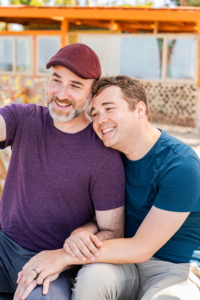Purim is a particularly joyous and festive Jewish holiday. Set in Persia, its story tells of the brave Esther, a Jewish woman who saves her people from a threatened massacre instigated by Haman, the King’s sinister vizier. The holiday is traditionally celebrated with enthusiastic flare and the giving of gifts to friends and the underprivileged.
The Book of Esther brings to life the philanthropic mitzvot (good deeds) of mishloach manot, the “sending of portions of food,” and matanot levyonim, “gifts for the underprivileged.” These acts serve to strengthen and acknowledge the integral ties that form our community. Undeniably, our ability to come together and uphold our shared values is what has allowed our communities to prosper in times of stress.
These two mitzvot are in turn directly related to a third mitzvah – the seudah, or “festive meal” of Purim. This feast is a remembrance of the banquets Esther cleverly orchestrated in order to gain favor from the Persian King. Jewish text states:
“It appears that the reason for [mishloach manot and matanot levyonim] is so that everyone can fulfill the mitzvah of eating a proper, festive meal on Purim.”
The gifts of food we offer each other are meant to contribute to this festive meal. And the assistance we give to the underserved ensures that they also have the means to partake in this jubilant mitzvah. Thus, if everyone fulfills these mitzvot, no one is left wanting for the great Purim feast. These mitzvot serve two purposes — to fortify a sense of community, and to remind ourselves that as we celebrate, we must also be conscious of the needs of others.
In the end, this story is a transformation from impending tragedy to joyous celebration. More than just a jovial holiday, we’re reminded that it is an occasion for connection, where we are inspired to strengthen our community bonds and ensure that all have the means to experience the joy and wealth of Purim.
In the spirit of fulfilling the Purim mitzvot, we have compiled suggestions for ensuring all in San Diego and in Jerusalem are able to enjoy their own festive meal. These organizations are vetted grantee partners of Leichtag Foundation with exceptional teams and programs. In honor of Purim, we encourage you to join us in giving to one or several of these organizations, all vetted partners of Impact Cubed and the Leichtag Foundation, or other initiatives that ensure no one has to worry about where their next meal will be coming from.
San Diego
Coastal Roots Farm
Guided by Jewish directives, Coastal Roots Farm grows more than 80,000 pounds of food a year and donates more than 70% of their harvest to San Diegans facing food insecurity. Additionally, Coastal Roots Farm’s on-site pay-what-you-can Farm Stand reaches thousands of community members.
Community Resource Center
Community Resource Center serves more than 6,400 people in North County San Diego each year with emergency assistance, domestic violence emergency shelter, counseling, housing stability, and access to food. Last year CRC distributed over 608,000 pounds of nutritious food to individuals and families through their Food & Nutrition Center, ensuring vulnerable recipients have enough to eat while saving scarce dollars for rent, utilities, medical expenses, and transportation.
Jewish Family Service
Among the many services they offer, Jewish Family Service distributes both meals and groceries to those in the community facing food insecurity, as well as congregate dining for seniors.
Jerusalem
Jerusalem Food Rescuers
Jerusalem Food Rescuers aims to create a more just and sustainable urban food system with less waste. Working with the wholesale market, a team of hundreds of volunteers diverts surplus produce that would have otherwise gone to waste to support communities that don’t have equitable access to food through direct food access. JFR also engages in food literacy focused activities such as lectures and workshops with kids and adults, and run a sustainable catering business.
Leket
Leket is Israel’s largest food and food distribution network, often called its national food bank. Leket harvests surplus agricultural produce and collects cooked meals then sorts and distributes them to the needy throughout the country. In addition, the Nutrition and Food Safety department ensures that the collection and distribution of food is held to the highest food safety regulations. Additionally, Leket only donates 100% nutritious food. Leket works with a staff of professional dieticians who conduct nutrition workshops for targeted populations geared toward raising awareness of proper nutrition.
Hanz Enyeart,
Communications and Events Associate
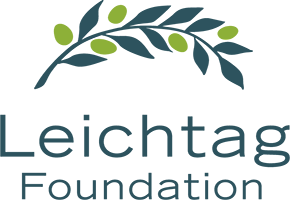
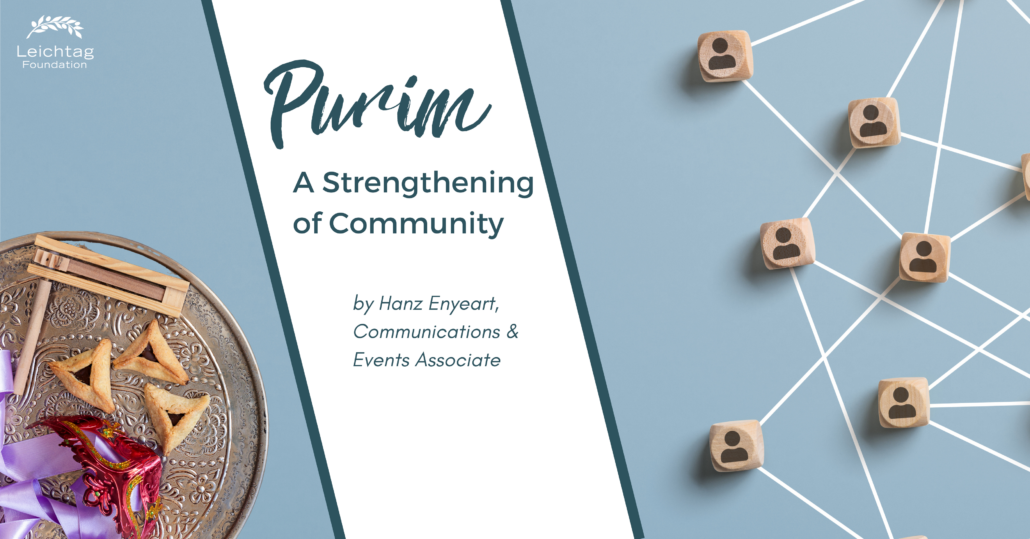
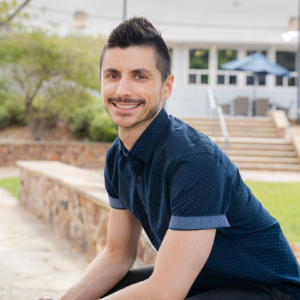

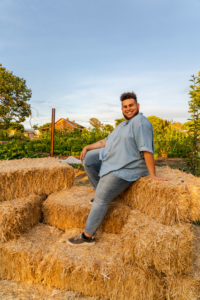 Black, Jewish and Queer. These three identities weave the fabric of who I am, but it took a long time to believe that they could exist together.
Black, Jewish and Queer. These three identities weave the fabric of who I am, but it took a long time to believe that they could exist together. Lee and Toni Leichtag established the Leichtag Foundation in 1991 following the sale of their business. Lee and Toni were lifelong entrepreneurs with a passion for innovation and for supporting talent. They believed that only with big risk comes big reward. Both born to families in poverty, Toni to a single mother, they strongly believed in helping those most in need and most vulnerable in our community. While they supported many causes, their strongest support was for young children and the elderly, two demographics who particularly lack voice in our society.
Lee and Toni Leichtag established the Leichtag Foundation in 1991 following the sale of their business. Lee and Toni were lifelong entrepreneurs with a passion for innovation and for supporting talent. They believed that only with big risk comes big reward. Both born to families in poverty, Toni to a single mother, they strongly believed in helping those most in need and most vulnerable in our community. While they supported many causes, their strongest support was for young children and the elderly, two demographics who particularly lack voice in our society.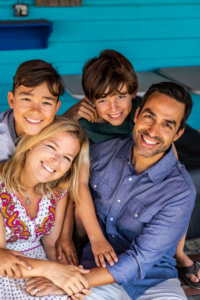 Lifelong Baltimoreans, Rabbi George and Alison Wielechowski and their sons, 11-year-old Lennon and 9-year-old Gideon, are more than pursuing the good life in Southern California. Having moved to San Diego more than three years ago, they are fulfilling a lifelong dream.
Lifelong Baltimoreans, Rabbi George and Alison Wielechowski and their sons, 11-year-old Lennon and 9-year-old Gideon, are more than pursuing the good life in Southern California. Having moved to San Diego more than three years ago, they are fulfilling a lifelong dream.
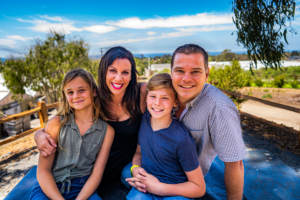
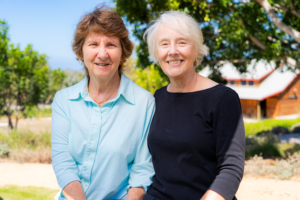

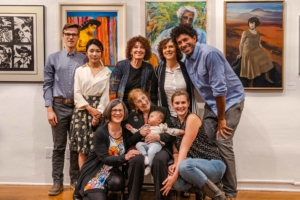
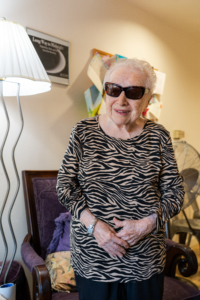
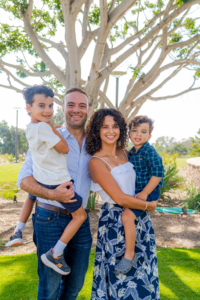
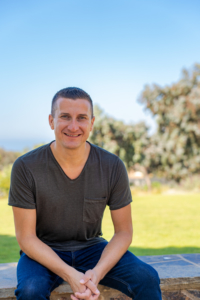 You would think that as the executive director of San Diego LGBT Pride, Fernando Zweifach López Jr., who uses the pronoun they, has done all the coming out they possibly can. A queer, non-binary individual who has worked for many years on civil rights issues, López also speaks openly and often about their father’s family, Mexican-American migrant workers who tilled the fields of rural California.
You would think that as the executive director of San Diego LGBT Pride, Fernando Zweifach López Jr., who uses the pronoun they, has done all the coming out they possibly can. A queer, non-binary individual who has worked for many years on civil rights issues, López also speaks openly and often about their father’s family, Mexican-American migrant workers who tilled the fields of rural California.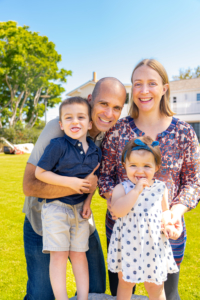 Stacie and Jeff Cook understand commitment. They live it.
Stacie and Jeff Cook understand commitment. They live it.